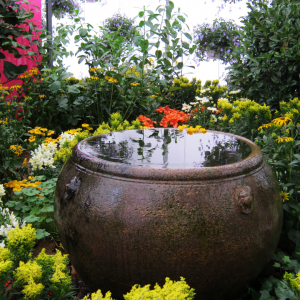
Exhaustion is a common complaint amongst writers. We are inveterate over-thinkers, tinkering with ideas, analysing themes, past failures and successes, grappling with the imposter syndrome, and never giving our minds the rest they deserve.
This month has been particularly trying for me. Having just released my novel, I’ve worried over it like a fledgling. Will it survive? Will it be well received? What if all that time and effort was for nothing? What if everyone just hates it? Needless to say, it’s doing fine. But I’m so wrung out, I just can’t seem to move forward. Deadlines are looming, but I’m languishing in a state of motionless ennui.
Not all of it is book related. Covid is rampaging through India once again, and I agonize over the state of the country and my near and dear ones. My father, who is still a practicing GP, is older and vulnerable and not very well right now. I think the worst, then check myself. No amount of doom-scrolling or imagining the worst-case-scenario will help, so I try to think positively, praying for the best possible outcome. As do so many of us at a time like this.
Another thing that gnaws at me is book related. It’s silly, but sometimes the people you expect to get whole-hearted support from (friends or family members) are indifferent to your efforts. Aside from a breezy “Oh, good job!” they have barely acknowledged that for me, this is a big deal! But hey ho. On the flip side, I’ve had the most unexpected people step forward and celebrate me. Makes me realise the adage is true – when a door closes, a window opens elsewhere.
In all of this, I’ve felt very depleted… unable to focus on writing with my mind gnawing over all sorts. I feel like giving myself a kick up the a**e! However, I know also that once I’ve finished wallowing, I’ll get back up and get back to the writing. From listening to many writer podcasts, I’ve realised that I’m not alone in feeling alone on this journey. At least I have a handful of people who have supported me through thick and thin. They may not be the ones I expected, but I’m so grateful they exist! So many writers carry on in the face of opposition and indifference and barely any support. My little family, my small group of avid readers and the few friends who have stood like rocks by my side, are more than most people get.
Yet, this listlessness overpowers me.
I’m unable to concentrate on reading, picking up and abandoning books carelessly. To refill that well of inspiration, I’ve watched many movies. One that caught my fancy was ‘Ajeeb Daastaans’. Four vignettes, four stories that show the various aspects of India, each of these tales had a little twist at the end. To me, it felt like I was watching one of my stories on screen. The response they evoked in me was the very response I’ve wanted from my reader. A sense of awe, of disbelief, of “how did I not see that coming?”
Yes, watching this on Netflix has lit a tiny spark within me. I need to get back to writing, just for the pure joy of it. What does it matter if no one reads it? Who cares if they think this a passing fancy, or I’m some kind of fraud parading around as an author? I know how much I love creating these worlds and these characters, and surely that’s all the recompense I need?
Last week I was invited to judge a poetry competition at my school in India via a Zoom call. Reticent to begin with, I finally agreed, remembering what I was like at age 16, and how, back then, I dreamt I would one day be sitting in a judge’s seat. To a teenager, that seemed like an immense honour. Naturally, age and experience have taught me that judging someone’s work is an incredibly arduous task. I tried to be fair and comprehensive. These young teens had poured so much of themselves into their poems, that it seemed almost cruel having to grade them. When I read out the results online the following day, I resorted to that old chestnut – “To me, you are all winners”. In truth, they all were. Perceptive, evocative and compelling, their creativity shamed me into acknowledging my own lack of drive. In my analysis of their work, I hope they took away some valuable lessons. But I took away far more.
Finally, even as I contended with my unproductive and spent state, a conversation about aging produced an incredibly poignant poem from my daughter. The context was how we view aging in physical terms – the wrinkles, the grey hair, the slowing down of the body. But a lot of it is about losing that vibrancy of youth, of the light within us slowly dimming until it eventually flickers out.
Surrounded by all this creativity, I have no excuses to fall back upon. I need to get back to my writing.
Here is the poem. I hope you enjoy it.
FLOWERS
I love you so much, I’m
so scared to see you grow
watch my vision of you
fade away, the petals
of your personality
starting to wilt
the vibrancy in your
eyes, dim
it’s all beautiful, but
that doesn’t make it
easy
call me selfish, I want
you to stay as you are,
always
with me
(MM)






